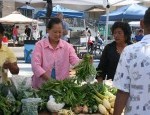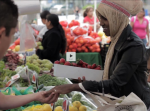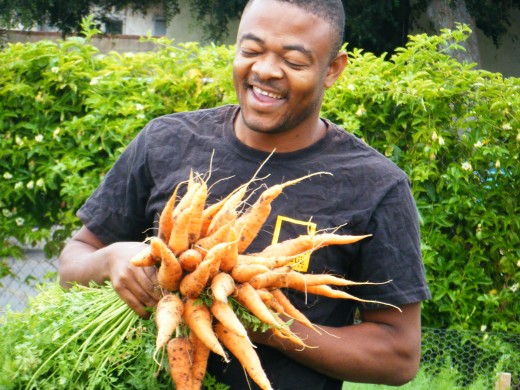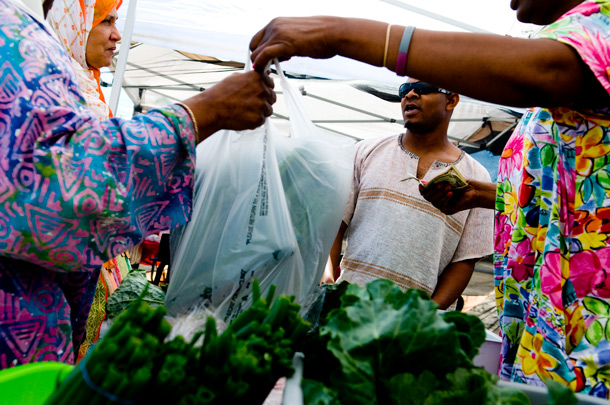When he moved to Encanto in 1985, Rob Giambruno started using his backyard to grow avocados, squash, citrus, beans, plums and, most prolifically, berries.
Though it was more than he could ever eat, he’d never thought to sell the surplus until a few months ago, when he stumbled upon the Southeast Farmers Market, which springs up every Friday afternoon on a normally desolate vacant lot near the corner of Euclid Avenue and Market Street, not far from his house.
The market’s organizers needed people like him. Since it opened to much fanfare in early December, the farmers market had been struggling to attract a key constituency — farmers. Giambruno was not a farmer, per se, but he did grow food in the neighborhood. If he got certified by the county’s agriculture department, he could sell that produce at the market and help fill the void.
Related Coverage
 |
San Diego’s Urban Farms: Oases in Food Deserts
Linda Vista is following City Heights’ lead by opening a farmers market and community garden to help feed low-income residents. The refugee neighborhood lacks fresh fruits and vegetables and grocery stores.
 |
Video: Low-Income Shoppers Thrive at City Heights Farmers Market
The City Heights Farmers Market celebrated its third anniversary in June. When it started, critics said the venture wouldn’t make it in a low-income community.
 |
Community Farm Grows Refugee Businesses
Urban farmers at the New Roots Community Farm, many who are refugees, are now selling their harvests at local farmers markets. The micro-enterprise venture is providing supplemental income for refugees.

